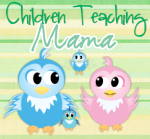 |
| Liam only a few hours old. |
 Liam was born 5 weeks early and was in the NICU (Neonatal Intensive Care Unit) for 2 weeks until his lungs were fully developed. We went through many medical interventions including feeding tubes, breathing tubes and things you'd never want for your baby. This is why it's so important to be educated about premature birth and the complications that can arise. Preemies are at risk for many, many more complications, so we made sure we learned as much as possible while still at the hospital. We took preemie preparation classes and attended classes with other parents of preemies. We learned CPR for infants and about other possibilities like RSV, too. I think these are things ALL parents should know before taking a baby home, preemie or not, because we, as 2nd time parents, didn't even know half of the things we learned the second time around.With World Prematurity Day coming up on November 17th, I want to tell you all about our experiences, how you can prevent RSV and how you can help spread awareness.
Liam was born 5 weeks early and was in the NICU (Neonatal Intensive Care Unit) for 2 weeks until his lungs were fully developed. We went through many medical interventions including feeding tubes, breathing tubes and things you'd never want for your baby. This is why it's so important to be educated about premature birth and the complications that can arise. Preemies are at risk for many, many more complications, so we made sure we learned as much as possible while still at the hospital. We took preemie preparation classes and attended classes with other parents of preemies. We learned CPR for infants and about other possibilities like RSV, too. I think these are things ALL parents should know before taking a baby home, preemie or not, because we, as 2nd time parents, didn't even know half of the things we learned the second time around.With World Prematurity Day coming up on November 17th, I want to tell you all about our experiences, how you can prevent RSV and how you can help spread awareness. Respiratory syncytial virus (RSV) is a virus many children catch at least once before the age of 2. It can cause moderate and/or severe cold symptoms for many, but for some babies RSV disease can lead to other more serious complications and lung infection. RSV is especially dangerous for infants and even more so for preemies born before 36 weeks.
What are the Symptoms of RSV?
- Coughing or wheezing that does not stop
- Fast breathing or gasping for breath
- Spread-out nostrils and/or a caved-in chest when trying to breathe
- A bluish color around the mouth or fingernails
- A fever (in infants under 3 months of age, a fever greater than 100.4°F rectal is a cause for concern)
How To Prevent RSV
There are a few precautions you can take to help protect your baby. These are something all parents and family members should do and are very easy!
- Make sure you always wash your hands before holding/touching baby. Don't be afraid to ask others to do the same. (We always keep hand sanitizer in every room, too, as well as our diaper bag for when out in public places, which have many more germs!)
- Do NOT allow anyone to smoke in your home or near the baby.
- Keep toys santized. Many can be washed in the dishwasher to sanitize thoroughly.
- Keep clothing and bedding clean by washing often.
- Try to limit the amount of exposure to crowded areas and young children. Being out in public exposes babies and infants to many more germs, so be careful to also keep away from people with colds.
- Educate yourself about RSV and talk with your pediatrician.
 |
| Liam finally coming home! |
Please educate yourself and others about the risks associated with premature birth and RSV. I know these aren't subjects we enjoy discussing, but it's imperative for your own baby's health. To learn more about RSV, please visit https://www.rsvprotection.com/. For more information on World Prematurity Day, please visit the March of Dimes website.
I wrote this review while participating in a blog tour by Mom Central Consulting on behalf of MedImmune and received a promotional item to thank me for taking the time to participate.









2 comments:
My daughter was born in Feburary and only healthy visitors were allowed to stop by. Its better to be safe than sorry.
I know all to well about RSV my son was born December 2005 and at 2 months old my son had RSV and then again one year later. I had to also deal with his asthma and a overly hungury child. I was one of the lucky mother that did not have to have their child in the hospital. Since having to deal with it once already I was prepared the second time.
Post a Comment